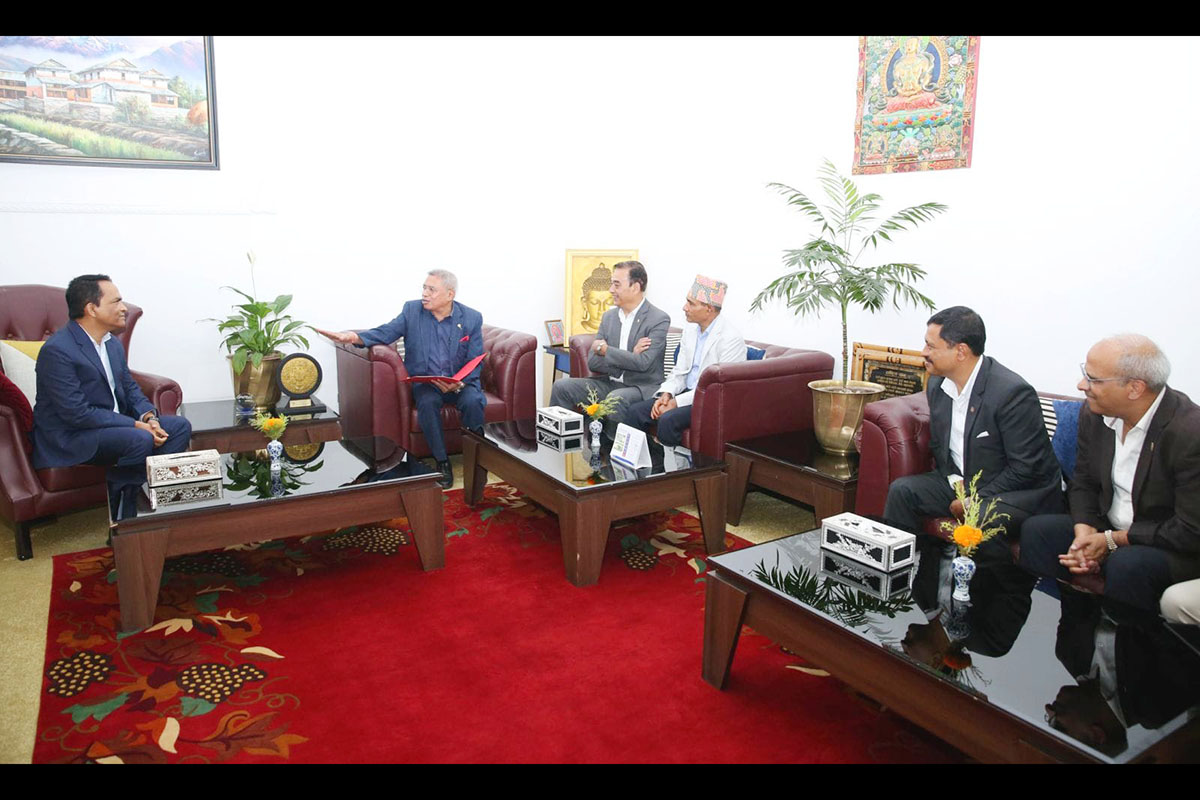
KATHMANDU: Nepal Chamber of Commerce (NCC) has submitted recommendations to Nepal Rastra Bank (NRB) Governor Biswo Nath Poudel on the monetary policy for fiscal year 2025/26, urging a focus on achieving 6% economic growth and containing inflation within 5.5%.
With the government’s annual budget set at Rs 1,964.11 billion for the upcoming year, the NCC highlights four years of economic volatility, citing the lingering effects of the Covid19 pandemic, global supply-chain disruptions triggered by the Russia–Ukraine war and three years of contractionary measures. These factors, it warns, have widened the gap between demand and supply, eroded private sector assets and deterred much-needed investment despite ample liquidity in financial institutions.
Entrepreneurs and businesspeople have been hardest hit, with more than 100,000 blacklisted in the past three years for failing to service instalments, pay interest or deposit cash. The NCC recommends rescheduling these loans through joint lender-borrower reviews tailored to each industry’s characteristics to restore confidence and prevent viable enterprises collapsing.
The cooperatives sector’s crisis has also restricted small businesses from withdrawing their savings, further straining grassroots liquidity. The NCC calls for swift remedial action to stabilise cooperatives and safeguard small entrepreneurs and savers.
To stimulate domestic investment, the NCC urges the immediate registration of all legal assets and capital acquired before the enactment of the Income Tax Act 2058 and the Money Laundering Prevention Act 2064, alongside authenticated proof of source. Such measures, it argues, will legalise unrecorded wealth and improve investor certainty.
On policy stance, the NCC insists monetary policy should be fully expansionary, loose and flexible, with enhanced credit flows to the private sector. It advocates a permanent single-digit interest-rate regime for small and medium-sized enterprises, retention of bank rate at 5%, an aligned interest-rate corridor, tiered limits on fixed deposits and savings accounts, and a spread rate of 3.5%.
Working-capital facilities must be readily accessible until the recession is overcome, the NCC states, recommending repeal of the Working Capital Loans Guidelines, 2079. It further proposes real-estate loans above Rs 5 million carry 100% risk weight, and that housing and real-estate mortgages be rescheduled and restructured.
To address loan-to-income constraints, the NCC calls for repayments from property sales to be permitted and for all banking-channel payments to be recognised. It also suggests maintaining an 80 : 20 valuation ratio for real-estate loan disbursement and allowing housing loans up to Rs 50 million with instalments of up to 80% of income, provided supplementary payment sources exist.
In the capital market, the NCC recommends abolishing the Rs 150 million individual loan ceiling to deepen stock market participation. To boost tourism, it supports allowing foreign visitors to bring up to $5,000 and circulating high-denomination Indian currency notes. It also proposes removing cash-deposit limits to channel informal-economy funds into banks and ending police intervention in cash movements.
To drive growth, the NCC suggests setting a 15% credit-growth target, limiting liability on personal guarantees to guarantors’ share ratios and permitting unaffected companies to continue operations if one invested firm is blacklisted. It calls for uniform banking documentation, regulated service fees, concessional loans and duty-drawback facilities for export-oriented industries, and once-only KYC submission with bank-to-bank sharing.
The private sector organisatrion urges Nepal Rastra Bank to deploy nearly Rs 2,500 billion in foreign-exchange reserves to boost economic activity and allocate more than 35% of earnings towards infrastructure development. It also calls for supportive electric-vehicle policies, including an 80% import-loan facility, to reduce the trade deficit, create jobs and strengthen foreign-exchange buffers.
The NCC believes close coordination between monetary and fiscal policy will mark the turning point in overcoming Nepal’s prolonged economic slowdown.






